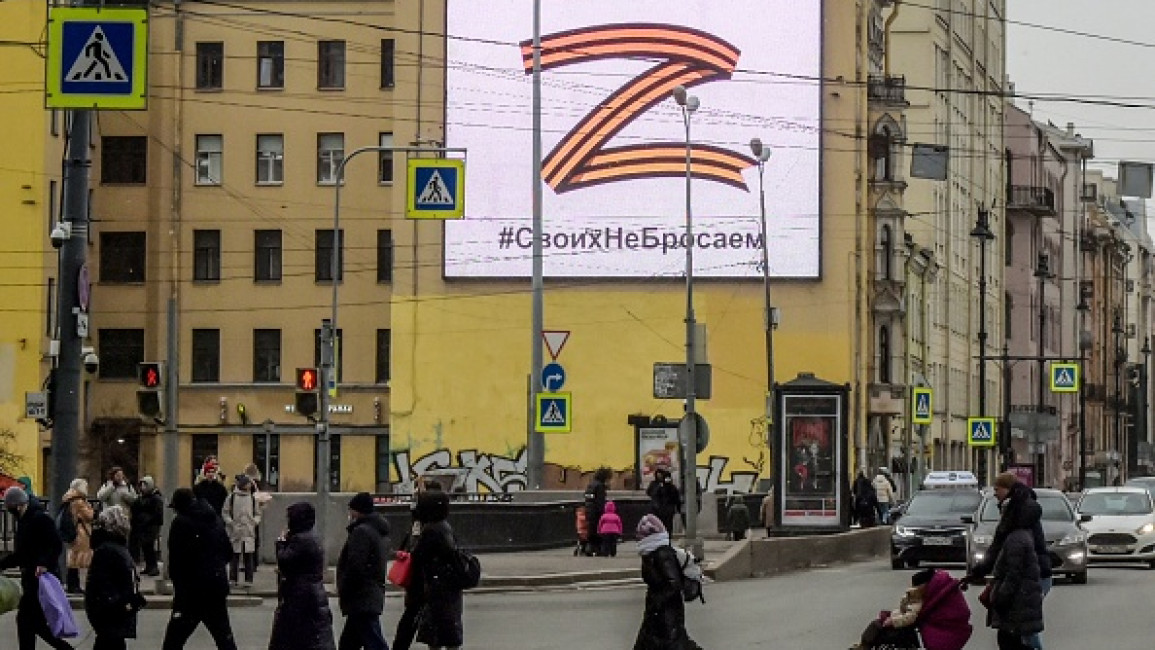The meaning of 'Z': Putin's propaganda campaign to garner support for Russia's brutal invasion
The letter 'Z' has emerged as a pro-war symbol of Russian President Vladimir Putin’s brutal invasion of Ukraine.
Hundreds of Russian vehicles invading Ukraine first carried this distinctive letter painted in white, and it has quickly gone from being a military marker to a symbol sported by the politicians and atletes keep to show their support for Putin.
Elsewhere in Europe, pro-Putin and right-wing activists have pasted the Z on the sides of cars.
Russia's defence ministry explained on its social media channels that the symbol comes from За победу, which begins with a 'z' sound and means "for victory", The Guardian reported. The alphabet has become part of a propaganda campaign pushed by pro-Kremlin users online.
Let's discuss what's happening in Russia. To put it simply, it's going full fascist. Authorities launched a propaganda campaign to gain popular support for their invasion of Ukraine and they're getting lots of it. You can see "Z" on these guys' clothes. What does it mean? 🧵 pic.twitter.com/F2zjcpJCDZ
— Kamil Galeev (@kamilkazani) March 6, 2022
"Authorities launched a propaganda campaign to gain popular support for their invasion of Ukraine and they're getting lots of it," wrote Kamil Galeev, a Galina Starovoitova Fellow at the Woodrow Wilson Center on Twitter.
"This symbol invented just a few days ago became a symbol of new Russian ideology and national identity."
The symbol has been used in Russia - along with countries such as Serbia - to garner support for the invasion of Ukraine in Russia. There have even been reports of pro-Assad Syrians in regime-held areas taping Zs to their cars to show their support for ally Russia.
Kremlin-backed news organisation RT announced just days into the invasion that it was selling 'Z' merchandise, including T-shirts and hoodies, to show support for Russian soldiers.
Russian gymnast Ivan Kuliak, who won the bronze medal in parallel bars at the final of the Apparatus World Cup in Doha, sported the 'Z' on his outfit when standing on the podium next to gold medallist Illia Kovtun from Ukraine. He faces disciplinary measures for what the International Gymnastics Federation called "shocking behaviour".
Russia has a history of promoting specific symbols to garner support for its military. During its incursion into Crimea in 2014, Moscow promoted the use of orange and black ribbons of St George, a symbol that was banned in Ukraine in 2015.



